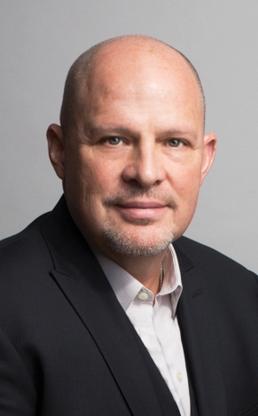
UFT President Michael Mulgrew
We are facing a crisis in our school system that we are handling largely on our own: Over the past 18 months, more than 20,000 children from asylum-seeking families have arrived in our schools. Yet no one in leadership seems to be talking about or figuring out how to provide the meaningful support these new students need.
Most of these children speak little or no English. Many have experienced upheaval and trauma in their home countries in addition to grueling journeys to come here. And their families’ lives in New York City are fraught with new challenges.
We are doing what we can as a union to respond. We fought for and won a $5,000 incentive for appropriately licensed teachers to take new assignments in bilingual education or English as a new language. The union has made these kids the focus of our annual coat drive for the second year in a row. And the union’s Dial-A-Teacher homework helpline is adapting to better serve this population.
With little support, classroom educators have done everything in their power to teach these children and make them feel welcome and valued. Because of who we are as public school educators, we always make do. In my visits to schools across the city, I’ve seen our members using online translation tools to reach out to families and communicate with their students. I’ve seen them supplement curriculums and make two or three sets of curricular materials to make sure all students have access to learning. I’ve seen students who don’t speak English given classroom jobs to help the teacher as a way to make sure they feel part of the class community.
But New York City educators cannot and should not have to figure this out on their own. Our school system needs support, and we need it now.
In November, the UFT will hold a Summit to Support Newcomers here at union headquarters. We will bring together experts across various disciplines, including language acquisition, mental health, health care, immigration and education, to engage in a wide-ranging discussion to determine what best practices and assistance our schools and communities need to get through this crisis. We want a wide reach because we believe schools have the potential to be central hubs for asylum-seeking families seeking to connect with local social services and find stable housing and other support.
Our hope is this summit results in concrete and sustainable support that can be delivered immediately to help our school communities facing this crisis.
In preparation for the Summit to Support Newcomers, we held a listening session on Oct. 25 to hear from UFT members from different job titles who have firsthand experience with the influx of newcomers into their schools. These members shared their concerns, their needs and the practices they have developed inside their schools to support these children. That session brought into focus many of the issues we will work through at our summit.
Coming together to face a challenge is what it means to be part of a union. We can’t wait around for the employer to come up with solutions or depend on the city to do the right thing. We must take it upon ourselves to think critically and creatively and force those who have the power to allocate resources where they are most needed and make meaningful change.
We as educators have a unique perspective on what our school communities need, and we can raise our voices to help spark positive change. Others in our communities are ready to work in partnership with us; we just need to bring everyone together to figure out what works and organize for change.
In the end, there may be no perfect solution to the current crisis, but we owe it to the students from asylum-seeking families to do everything we can to nurture and support them.